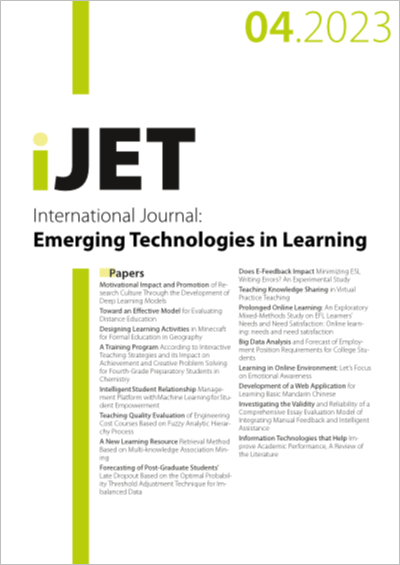Toward an Effective Model for Evaluating Distance Education
DOI:
https://doi.org/10.3991/ijet.v18i04.35167Keywords:
Distance education, learning management systems, evaluation, teachers, digital learningAbstract
Distance education has become popular due to their ability to provide learning from almost anywhere and anytime. COVID-19 forced educational institutions to urgently introduce distance education to ensure pedagogical continuity, so all stakeholders were invited to adapt to this new paradigm. In order to identify strengths and weaknesses, the research focuses on the need to create an effective mechanism for evaluating distance education. The aims of this research were to explore and evaluate the use of digital media in general and official platforms in particular in distance education practices. To this end, we have developed and validated a questionnaire before administering it to a sample of 431 teachers in Morocco. Teachers reported lower knowledge and skills in the didactic use of ICT in the distance education process. In addition, although age and educative experience of the teachers continue to modulate the level of instrumental skills. Therefore, resources (digital resources and infrastructure) and the teachers’ ICT training present serious limitations, which require a training more focused on the distance educational paradigm and educational environments that allow teachers to create educational activities able to promote and facilitate the distance learning process.
Downloads
Published
How to Cite
Issue
Section
License
Copyright (c) 2023 Mohammed AMRAOUY, Mostafa Bellafkih, Abdellah Bennane, Jallal Talaghzi

This work is licensed under a Creative Commons Attribution 4.0 International License.



